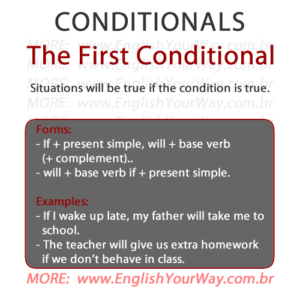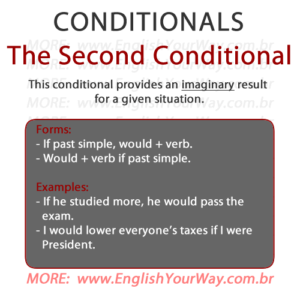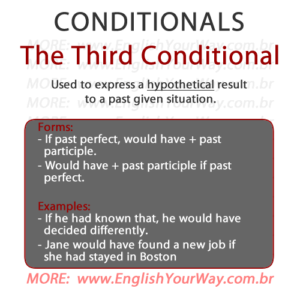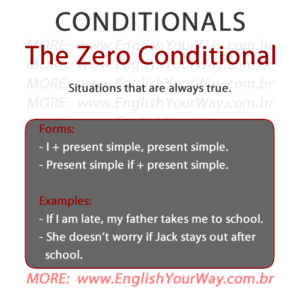The Zero Conditional
Situations that are always true if something happens.
Forms:
- If + present simple, present simple.
- Present simple if + present simple.
Examples:
- If I am late, my father takes me to school.
- She doesn’t worry if Jack stays out after school.
For more about the Zero Conditional, see the Zero Conditional Page
The First Conditional
These situations take place if a certain condition is met.
Form:
- If present simple, will + base verb (+ complement).
Examples:
- If it rains, we will stay at home.
- He will arrive late unless he hurries up.
- Peter will buy a new car, if he gets his raise.
For more about the First Conditional, see the First Conditional Page
The Second Conditional
This conditional provides an imaginary result for a given situation.
Form:
- If past simple, would + verb.
- Would + verb if past simple.
Examples:
- If he studied more, he would pass the exam.
- I would lower taxes if I were the President.
- They would buy a new house if they had more money.
For more about the Second Conditional, see the Second Conditional Page
The Third Conditional
Used to express a hypothetical result to a past given situation.
Form:
- If past perfect, would + have + past participle.
- Would + have + past participle if past perfect.
Examples:
- If he had known that, he would have decided differently.
- Jane would have found a new job if she had stayed in Boston
For more about the Third Conditional, see the Third Conditional Page




